
Exciting new series on “Voice, Body and Movement for Lawyers – How to connect with the jury and find Justice Through Dramatic Technique!”
Click here to find out more
This CLE will cover the critical ethics issues involved in leaving government practice for the private sector. It will describe the applicable ethics rules, statutes, and regulations that govern applying for private sector jobs while serving in the government, as well as how to ethically transition from the public to private sector. The CLE will cover the key Rules of Professional Conduct implicated in “revolving door” transitions including Rule 1.7 (current client conflicts), Rule 1.9 (former client conflicts), Rule 1.6 (confidentiality), and Rule 1.11 (successive government and private employment). It will also describe the relevant portions of 18 U.S.C. 207 (Post-Employment Restrictions), 18 U.S.C. 208 (Personal Financial Interests), and 5 CFR Part 2635, Subpart F (Negotiating for Employment).
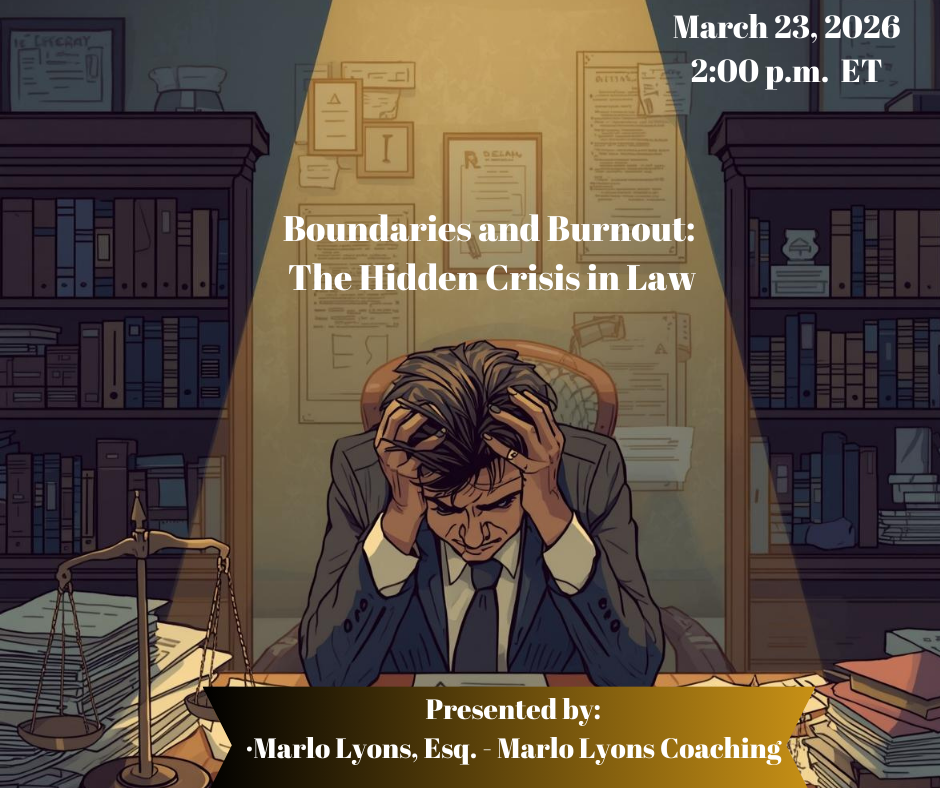
Boundaries and Burnout: The Hidden Crisis in Law is a 60-minute California MCLE Competence Credit pr...
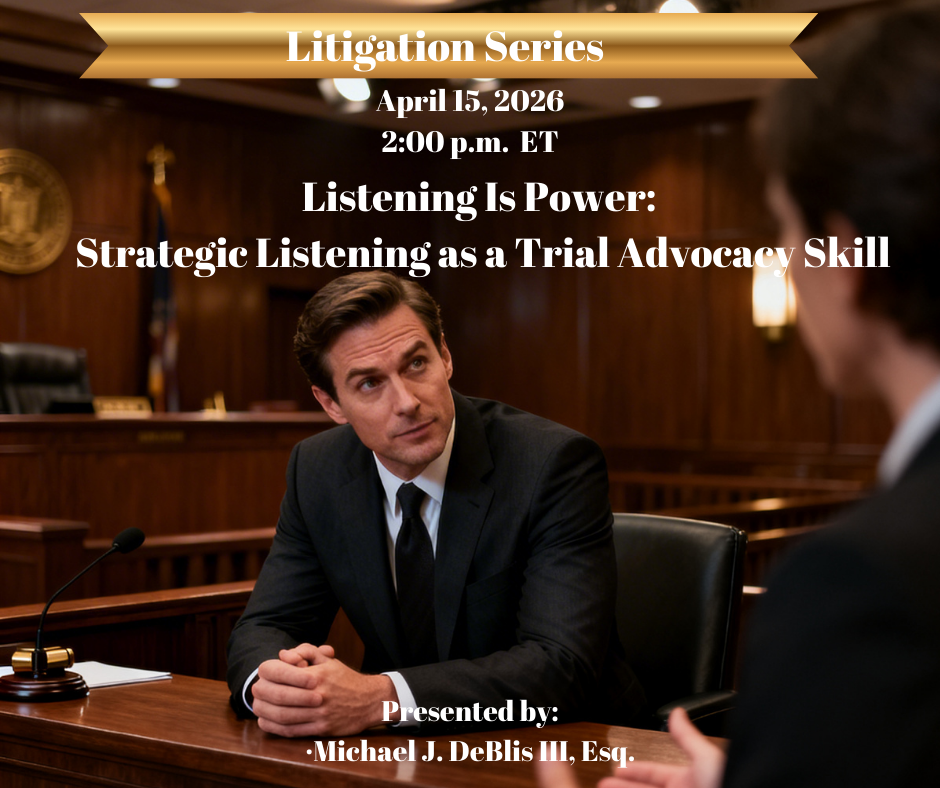
This program examines listening as an active, strategic trial advocacy skill rather than a passive c...
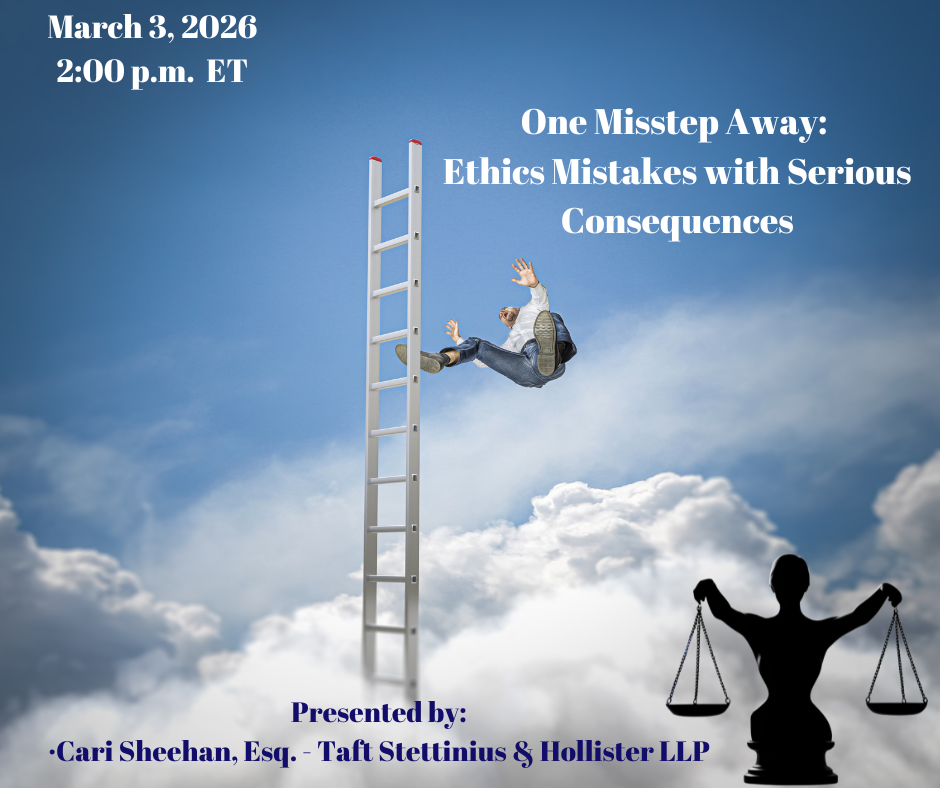
This ethics program examines common, but often avoidable, professional responsibility mistakes that ...
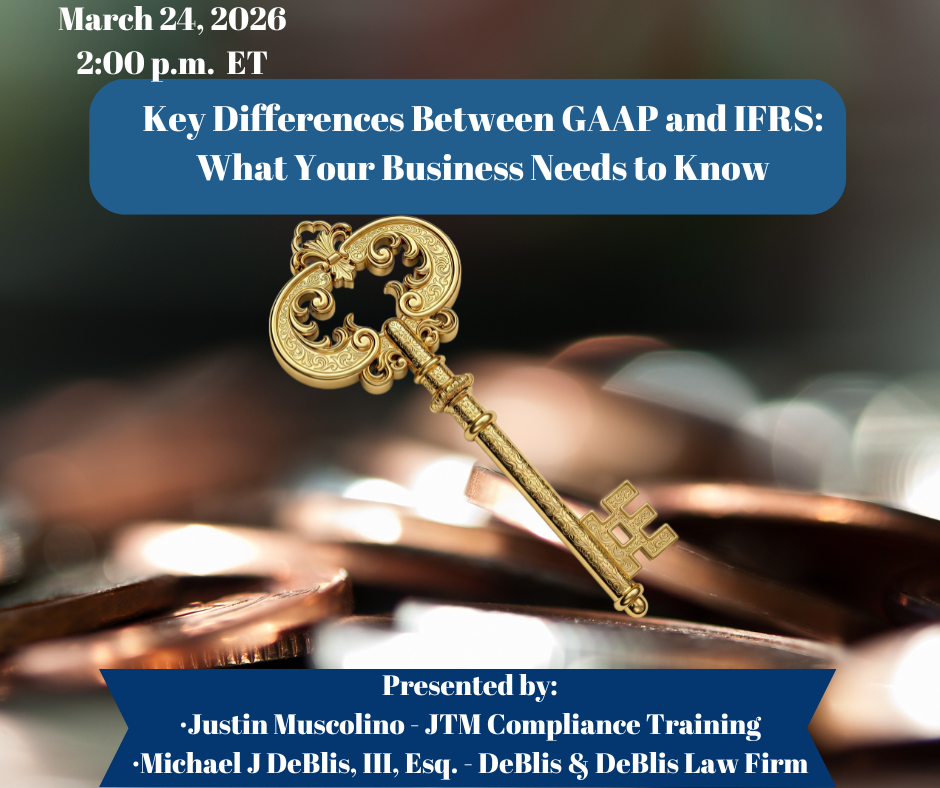
This session highlights the legal and compliance implications of divergences between GAAP and IFRS. ...
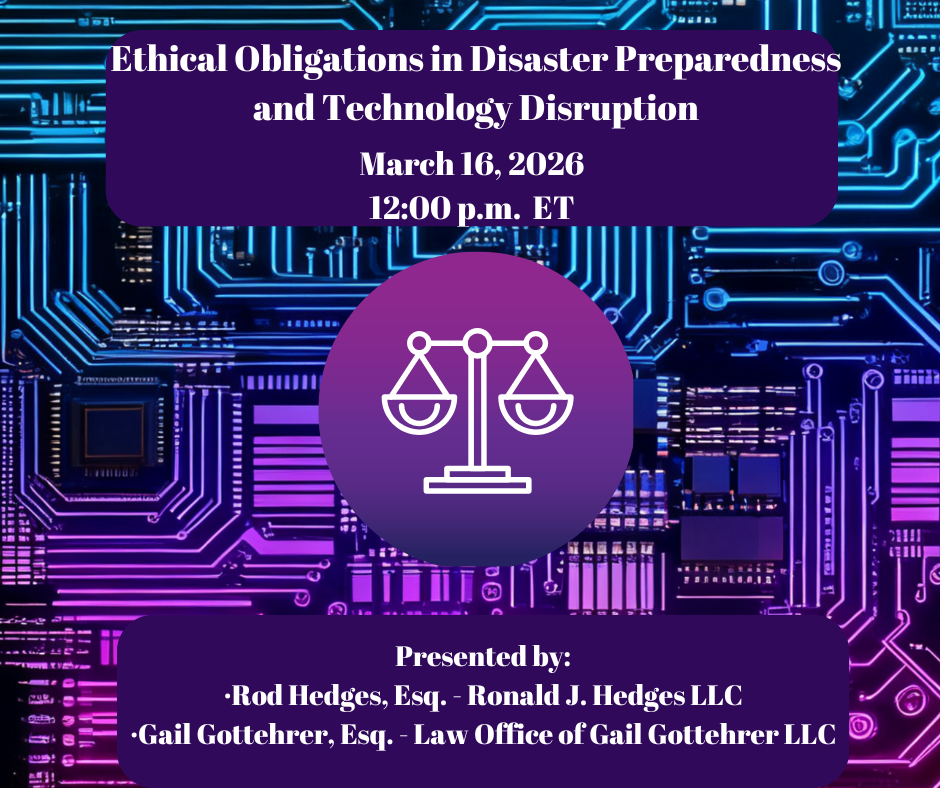
Disasters, whether natural or manmade, happen. Disasters can impact the practice of law and, among o...

As artificial intelligence becomes the engine of the global economy, the value of "AI-ready" data ha...
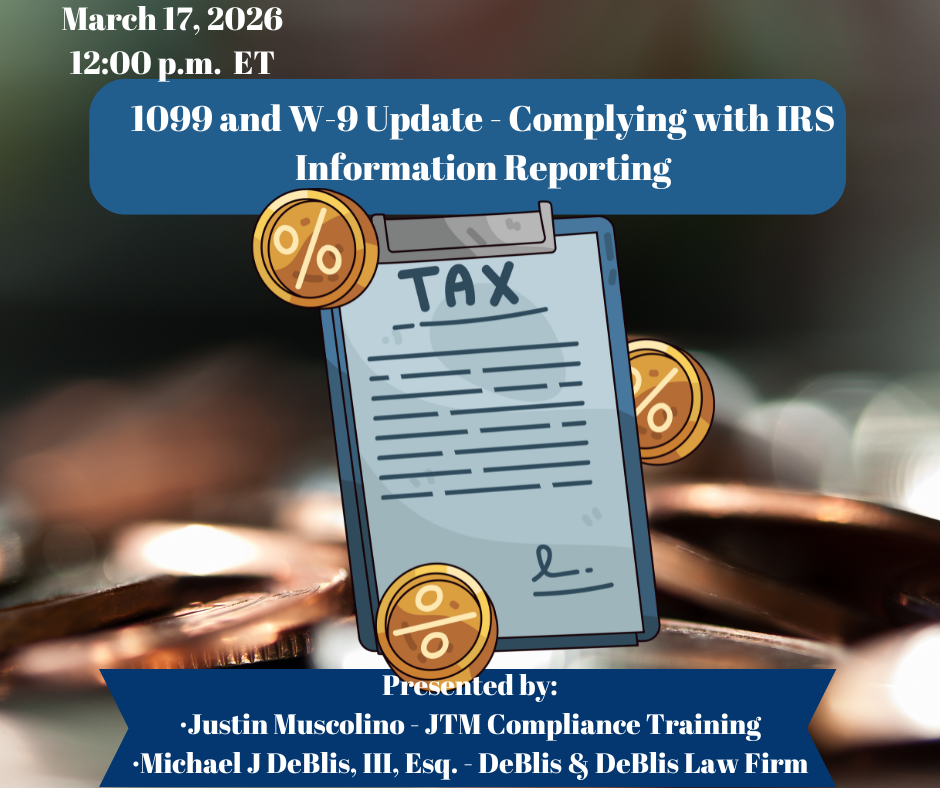
This CLE program covers the most recent changes affecting IRS information reporting, with emphasis o...
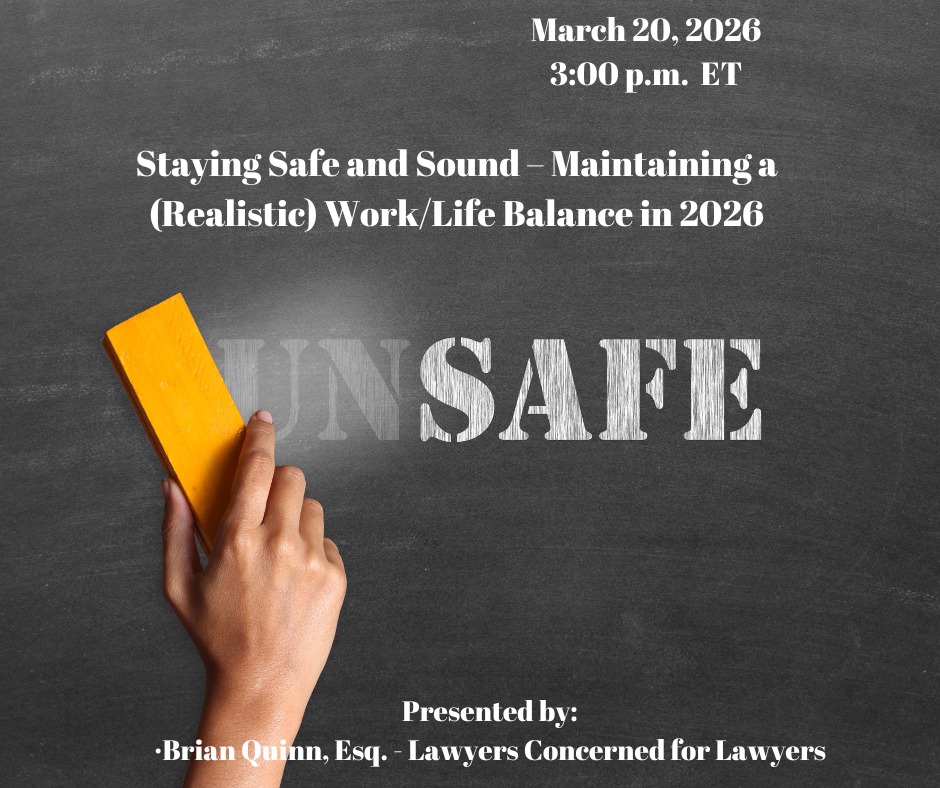
Recent studies have shown that there has been a dramatic increase in impairment due to alcoholism, a...
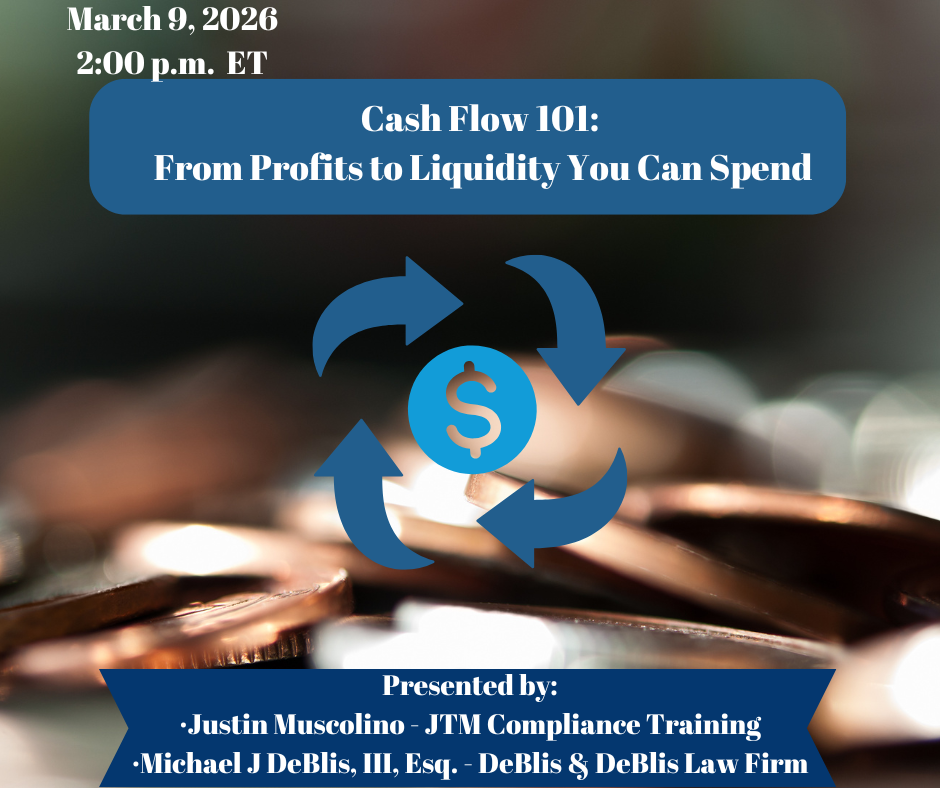
This course clarifies the distinction between profit and cash flow from a legal perspective. Attorne...
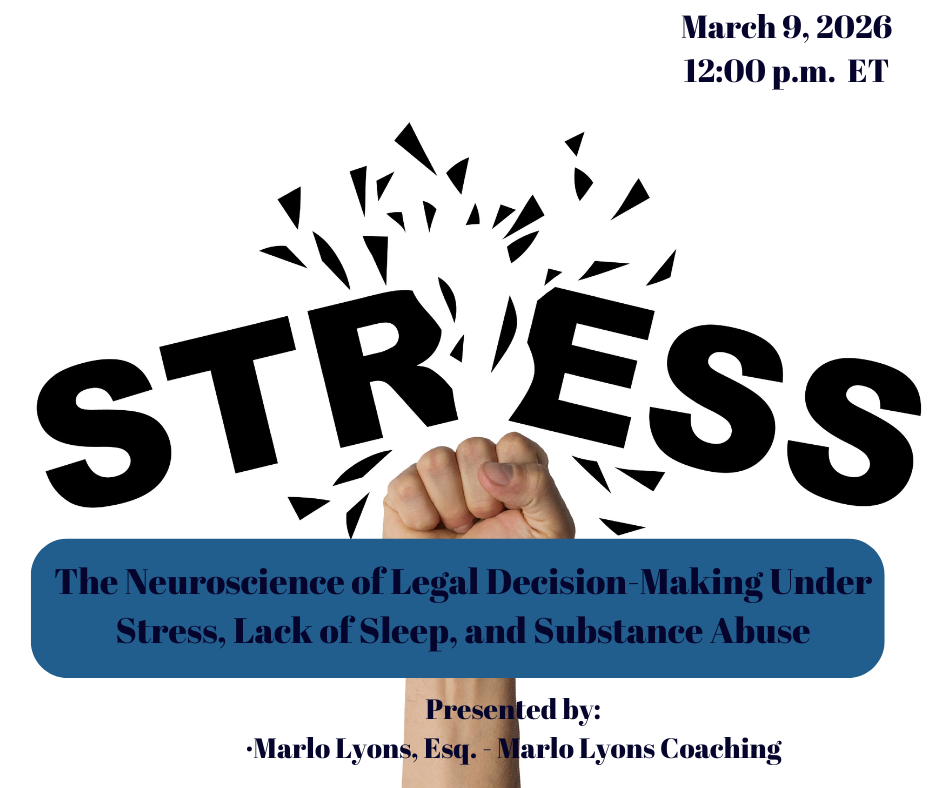
This dynamic and compelling presentation explores how chronic stress, sleep deprivation, and substan...